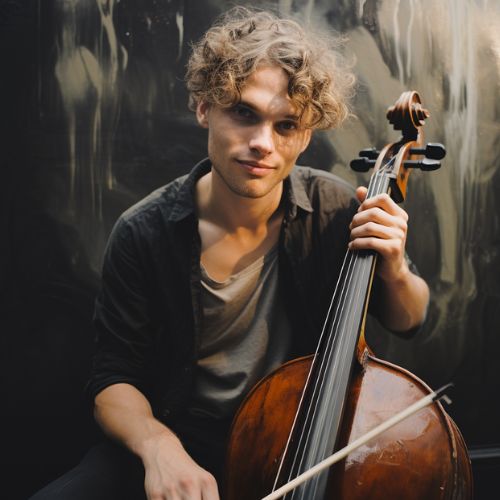“I Know the End” by Phoebe Bridgers is a poignant reflection on endings and the existential dread intertwined with a sense of longing and loss. The song narrates a journey through unsettling landscapes, both physical and emotional, concluding with an apocalyptic climax. It’s imbued with themes of alienation, homesickness, and a quest for belonging, juxtaposed with images of American life. Phoebe uses vivid imagery and metaphors to convey the profound emotions and experiences associated with inevitable ends and transitions. The song explores personal and universal feelings, navigating through relationships, and finding peace in solitude and acceptance.
Keep reading as we uncover the layers of meaning and emotions in this thought-provoking musical journey.
“I Know the End” Lyrics Meaning
Breaking down the lyrics chronologically, the song starts in a vague location, “Somewhere in Germany,” indicating a sense of displacement and dissociation. This disconnection continues with, “Man, I hate this part of Texas,” illustrating a universal feeling of dissatisfaction and discomfort with one’s surroundings. The character seems to be in a constant battle, fluctuating between the desire for isolation, represented by “there’s no place like my room,” and the hardship of losing someone, echoed in the recurring, “but you had to go. I know, I know, I know.”
The mention of “a wave that crashed and melted on the shore” and “not even the burnouts are out here anymore” can be seen as a metaphor for loss and impermanence, hinting at the evanescence of relationships and moments, melting away like a wave, leaving the shore barren.
The song then traverses emotional landscapes, illustrating conflict, “After a while, you went quiet and I got mean,” and a gravitational pull in relationships, “you come back with gravity.” The imagery of “a bird in your teeth” denotes something captured or possessed, symbolizing the complex dynamics within relationships.
Further, the lyrics, “When the sirens sound, you’ll hide under the floor,” and “I’m gonna chase it,” illuminate the contrast between avoidance and confrontation of inevitable destruction or end, symbolized by a tornado. The character decides to face it, to chase it, highlighting a courageous acceptance of fate.
As the song progresses, there is a transition into acceptance and a quest for origin and self, “Went looking for a creation myth.” The juxtaposition of “a slaughterhouse, an outlet mall,” and “fear of God” paints a multifaceted picture of American life, intertwining consumerism, religion, and violence, reflecting the contradictory nature of societal norms and values.
Towards the climax, “The end is here,” repeated, signifies an acknowledgment and acceptance of the end, whether it is the end of a relationship, a chapter, or the world. This finality is enhanced by the empty turn around to see “there was nothing there.”
Why Was “I Know the End” Written?
Digging into why “I Know the End” was penned provides a richer understanding of the emotions and thoughts layered within the song. It seems that Phoebe Bridgers was in a state of contemplation and realization about the transient nature of life, relationships, and the self. The song reflects a multifaceted emotional spectrum, from longing and loss to acceptance and resolution.
Phoebe’s intricate lyrics provide a canvas for listeners to paint their experiences and emotions, connecting with the universal themes of existence and the human condition. The landscapes, both physical and emotional, are metaphors for the internal and external worlds colliding, converging, and eventually, concluding.
This song is a mirror reflecting the writer’s state of mind, echoing the acceptance of inevitable ends and the resilience in facing them, a beautiful encapsulation of the human experience in all its complexity and simplicity.

